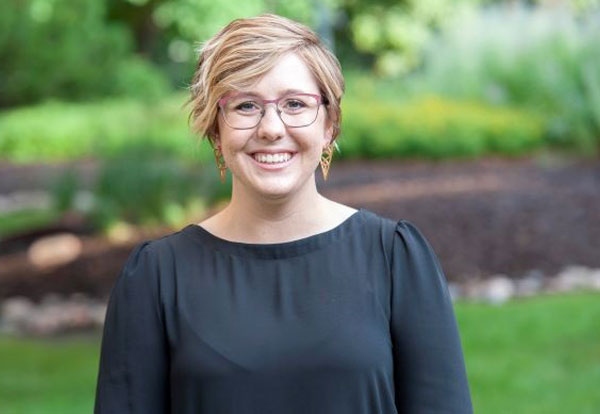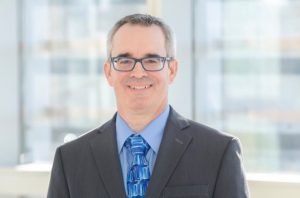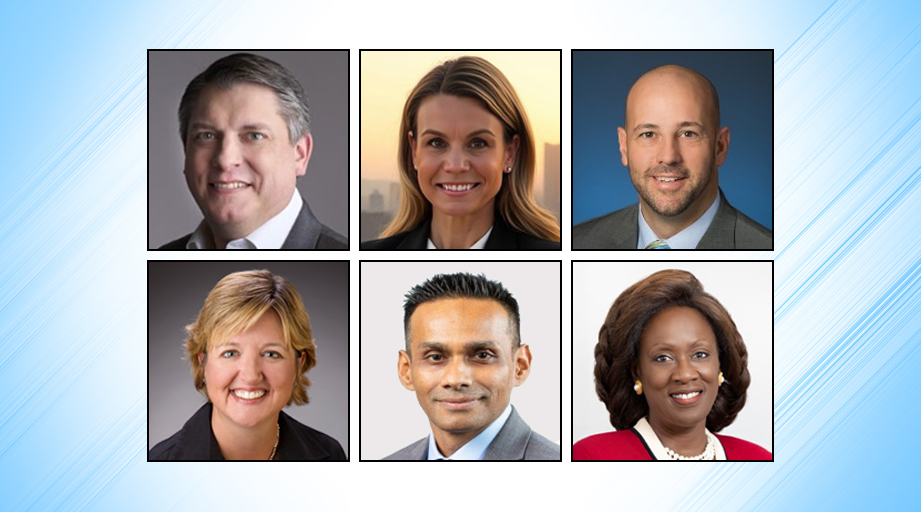
IN 2020, as a newly arrived Post-Graduate Year One (PGY1) resident at Nebraska Medicine, Omaha, Katherine "KC" Winter, Pharm.D., faced the demands of residency alongside personal stresses, including a hospitalized family member back home in Utah, while starting life in a new city where she knew only her co-residents and her residency program director.
"Because of COVID-19, I felt like I never had the opportunity to close out my pharmacy education and celebrate my accomplishments with family, friends, and mentors before taking the next step forward in my career," said Dr. Winter, now a Post-Graduate Year Two Emergency Medicine pharmacy resident at the Brooklyn Hospital Center in New York.
The variety of pressures she faced, along with the isolation wrought by COVID-19-related social distancing, "took a toll on my personal well-being," said Dr. Winter, so she decided to make use of the wellness resources available through her institution.
"I connected with a counselor who met me for after-hours sessions and also helped put me in touch with other avenues of support and additional resources that I could draw on," said Dr. Winter. "Something that stood out most was her commitment to my success. She always made it a point to check in with me, even after I started using other counseling services that she connected me with."
Developing a resident well-being program
Creating connections, whether with counselors or peers, is a cornerstone of Nebraska Medicine's approach to resident wellness. A formalized set of resources, including access to counselors, were launched several years ago by ASHP Fellow Patrick Fuller, Pharm.D., the inpatient pharmacy clinical supervisor and PGY1 residency program director at Nebraska Medicine, and his colleagues. At the time, Dr. Fuller noticed that a growing number of pharmacy residents needed some extra assistance navigating life's personal challenges and professional demands.
"One thing that became apparent to me was that residents were fearful of the fact that they will make mistakes and possibly fail at something throughout their residency year," said Dr. Fuller. "In some cases, residents were so afraid to fail that it began to mentally 'paralyze' them because they were striving to be perfect."
In response to this need, Dr. Fuller and his colleagues added a range of services to support pharmacy residents. One service they tapped into was the "Peers in Need of Support" (PiNS) program, through which volunteers receive training and learn about the various types of stressors healthcare providers face as well as serving as a confidential resource to individuals who may need someone to talk to.
"Really, more than anything, PiNS volunteers are there to listen and offer support, to show empathy, and then refer individuals to additional resources, including professional counselors or providers, when needed," said Dr. Fuller.
Implementation of PAI203 recommendations
Nebraska Medicine's wellness program models some of the 59 recommendations in ASHP's PAI2030. PAI2030 is a recent extension of the Practice Advancement Initiative (PAI), an initiative developed in 2010 by ASHP and the ASHP Foundation to transform how pharmacists care for patients by empowering the pharmacy team to take responsibility for medication-use outcomes. Through the recommendations, PAI2030 is intended to improve medication use. The recommendations Nebraska Medicine implemented are specifically aimed at helping the pharmacist perform their role, and to optimize education and training.

Throughout this process, Nebraska Medicine focused on PAI2030 domain E6, whereby "health systems should support the well-being and resiliency of their staff." Dr. Fuller noted that "providing resources to support the well-being of residents and pharmacy staff are vital components needed to meet other PAI2030 recommendations, especially domains related to patient-centered care."
Other aspects of the Nebraska Medicine residency wellness approach include a resident well-being and resilience section that is now part of each resident's quarterly development plan. Residents are asked specific questions about stressors, coping mechanisms and support they have received throughout the previous quarter. Their answers serve as a starting point for additional dialogue with Dr. Fuller, who can further tailor support to each resident, if needed.
During orientation, residents meet with a psychiatrist to learn about stress management coping strategies and how to maintain a healthy lifestyle throughout the residency year. Residents also form bonds with preceptors who serve as another support system for each resident, looking for signs that a resident might be struggling or experiencing stressors and referring them as needed.
In addition to formal wellness resources, like counselors and the PiNS program, residents are encouraged to celebrate by, for example, participating in the pharmacy department's monthly well-being challenges and earn points that can be redeemed for prizes, including gift cards, company apparel or wellness days off. Importantly, they are encouraged to form ties outside of class, Dr. Fuller explained.
"Before the COVID-19 pandemic, residents had one night off each quarter with the purpose of attending social outings or cultural events together," he said. "Although it's not quite the same, during the pandemic residents have used these nights to virtually connect with their families and for personal time."
The feeling of family and resident kinship that Dr. Fuller has helped cultivate has translated to a shared sense of responsibility among residents. For example, prior to the pandemic, a PGY1 class surprised one of the residents by looking after their newborn child so that they could go out to dinner on their wedding anniversary. "To this day, the resident still remembers the compassion and support they received from their co-residents," Dr. Fuller said.
Supporting patients and colleagues
In another illustration of what happens when you build a close-knit resident community, a PGY1 class helped a peer who was caring for a very ill family member by cooking meals for them for a week and voluntarily working some of the peer's scheduled shifts.
The lessons from these acts of giving are clear, Dr. Fuller said. "Carving out time for residents to spend time together outside of work creates a family atmosphere and an incredible amount of support during times of hardship," he said. "To see our residents serve the needs of our patients and the needs of one another, is truly awe-inspiring."
Despite the value of peer support in building resilience during residency, there are times when a resident needs additional help, and Dr. Winter believes the resources she was able to access at Nebraska Medicine helped her persevere through a challenging period.
"It took me a while to learn that it is okay to reach out or say, 'I need help,' but now I encourage others to do the same when they need to and to prioritize their personal well-being and mental health," Dr. Winter said.








